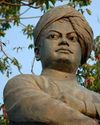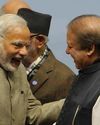Between Hindutva And Zionism, There Exist Some Core Similarities That Shape Their Worldview In Profound Ways.

I WANT EVERY Indian child, girl and boy, to be so touched by the light of education. I want every Indian to dream of a better future and live that dream.” Those were the words of then PM Manmohan Singh in his address to the nation on 1 April 2010, the day the Right to Education Act became operational.
Hindutva and Zionism. Few words—ideas— have been as misunderstood or reviled as these two have been. Both are similar, scholars of nationalism will tell you, because they espouse ethnic nationalism—the notion of a national community based on religion, race, or blood. Notwithstanding the differences in the symbols they choose to venerate or vilify, the core dynamics of identity and emotion are identical.
However, there lies a deeper similarity between the two than merely rhetoric. Between Hindutva and Zionism, there exist three core similarities that shape their worldview in profound ways. It is not my contention that these concurrences are responsible for a subconscious affinity between India and Israel: in fact, it is an uncomfortable and unspoken verisimilitude that much of the sympathy and admiration for Israel in India probably comes from the perception of a common enemy. Despite Jewish presence in the subcontinent for two millennia, Indians are only now beginning to discover Jews—perhaps speaking to the seamless harmony in which Hindus and Jews existed.
This story is from the June 2017 edition of Swarajya Mag.
Start your 7-day Magzter GOLD free trial to access thousands of curated premium stories, and 9,000+ magazines and newspapers.
Already a subscriber ? Sign In
This story is from the June 2017 edition of Swarajya Mag.
Start your 7-day Magzter GOLD free trial to access thousands of curated premium stories, and 9,000+ magazines and newspapers.
Already a subscriber? Sign In

Refuging Progess
There is a well-orchestrated global conspiracy to deny scientific and technological developments from the West to Third World countries.

The Monk Of Science
Vivekananda believed that Religion should be subjected to scientific methods of investigation. The third and concluding part of our series on the Swami and his views on science.
The Next Step
Indian technical manpower can be trained for high-value-added emerging services in the era of mass commoditisation of hardware.
The Threat Of Autarchy
The force of globalisation is an irreversible reality, and it is countries like India and China that will nurture it going forward.

Neanderthals: The Womb Of Caves
Recent discoveries indicate that Neanderthals may have had a rich inner life, including symbolic thought. Indeed, they may have been the progenitors of human religions.

Getting India's World Right
Incremental concessions will get India nowhere with Pakistan and China. What we need is a classically conservative foreign policy, based on realism.

The Hesitant Orbit
In order to march boldly ahead into the deep space, New Delhi must work towards building a station, boost its techno-economic planning and use the Indian Space Research Organisation smartly.

Nudges And Narratives
The debate surrounding Sanjay Leela Bhansali’s Padmavati brings India a complex network of portraits within a cultural world-system.

The Spell Of Specialisation
THE INDIAN ADMINISTRATIVE SERVICE NEEDS AN URGENT REJIG. THE KEY TO SPEED AND EFFICIENCY LIES IN PUTTING AN END TO A GENERALIST APPROACH AND IN GOING FOR A NEW SERVICE.
The Great Gamble
With demonetisation, the prime minister has taken a huge risk— both economic and political. He must succeed, because this move could transform both our economy and our society.